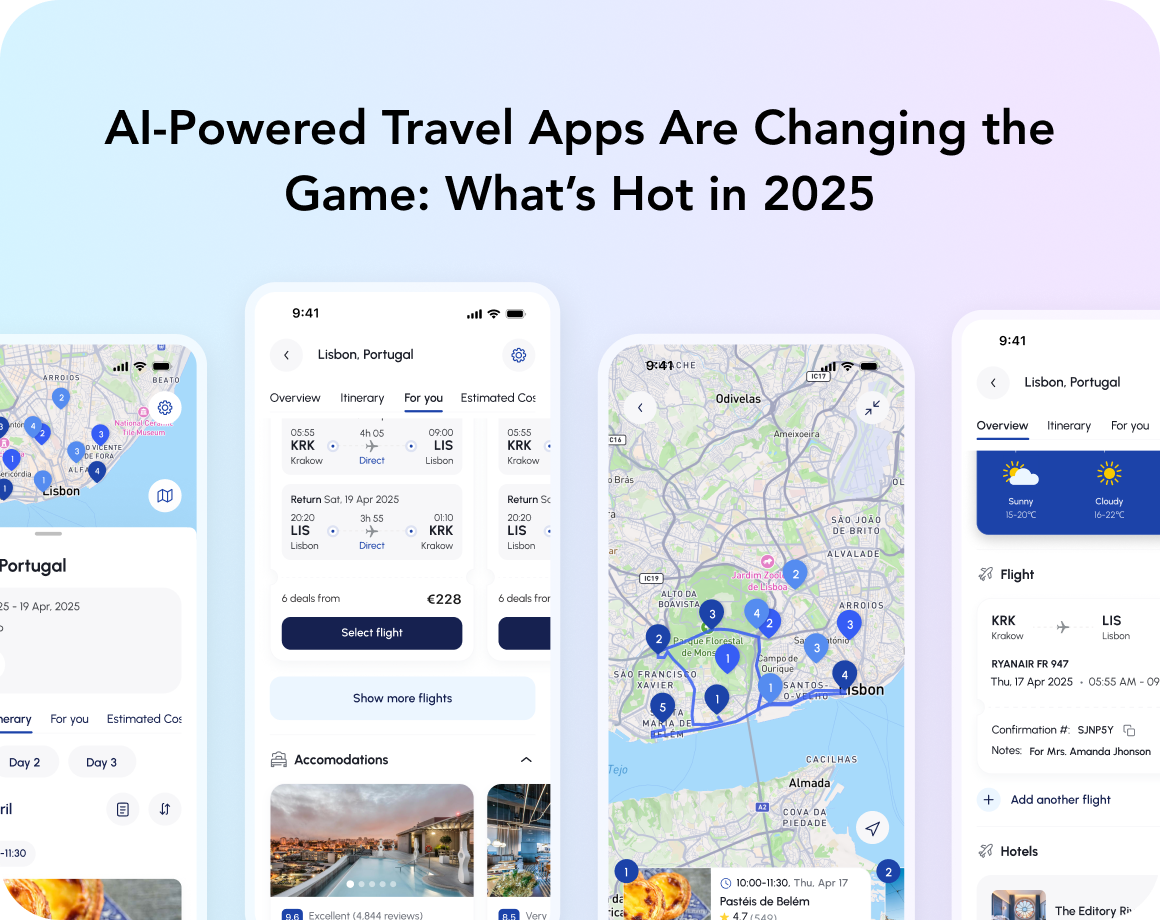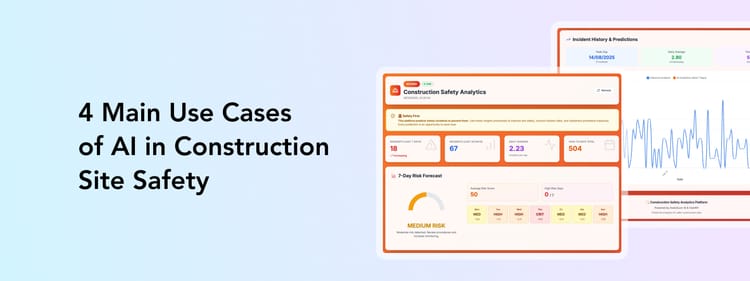Can you imagine traveling without your phone? Most of us can’t. It holds our tickets, maps, bookings, dinner reservations, and everything in between. And pretty soon, we won’t imagine traveling without a bit of help from AI either. Many companies are already actively using AI for travel management.
From booking flights to checking into hotels and navigating foreign cities, AI is transforming travel apps into smart companions that help travelers move faster, smarter, and with less stress.
Let’s explore how exactly travel companies are putting AI to work, with real examples and use cases from 2025.
Automated Trip Planning
Trip planning often turns into a mess of tabs, emails, and saved screenshots. Flights in one place, hotel bookings in another, notes scattered across apps. AI can turn all that into one smooth flow where travelers feel supported at every step.
JRNY by Perpetio shows how it can work in practice. Users enter their destination, dates, and interests. The app creates a full itinerary, filling each day with personalized suggestions based on preferences, budget, and who you're traveling with.
But it doesn’t stop there. JRNY pulls in existing bookings and fills in the blanks. Users can book activities and hotels, predict expenses, upload documents, and share their trip with companions, all in one place.

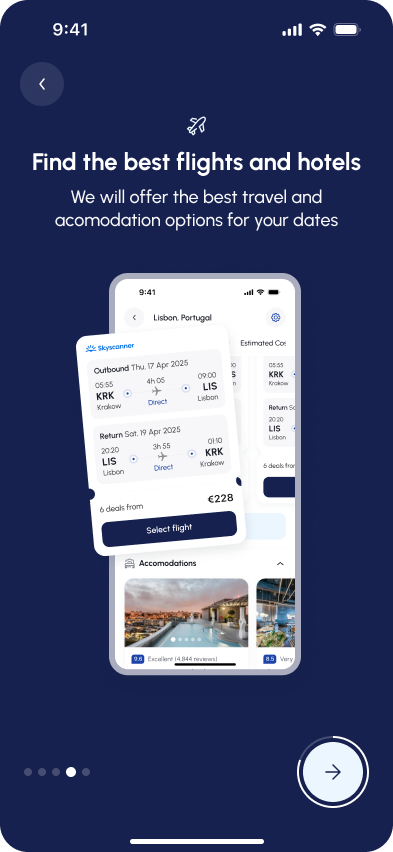
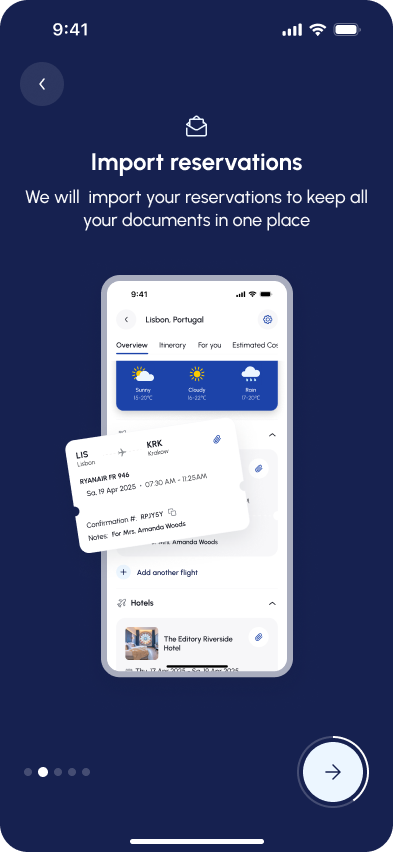
JRNEY AI-powered travel app by Perpetio
It’s not just convenient. It keeps travelers engaged and helps them make the most of their time away, without switching between apps or doing last-minute research on the go.
Perplexity’s integration with Tripadvisor offers another angle. Say a traveler can ask for a seven-day itinerary in Tokyo, and the chatbot responds with tailored suggestions for flights, stays, restaurants, and activities. All recommendations are based on Tripadvisor’s extensive review database, making them feel reliable and relevant.
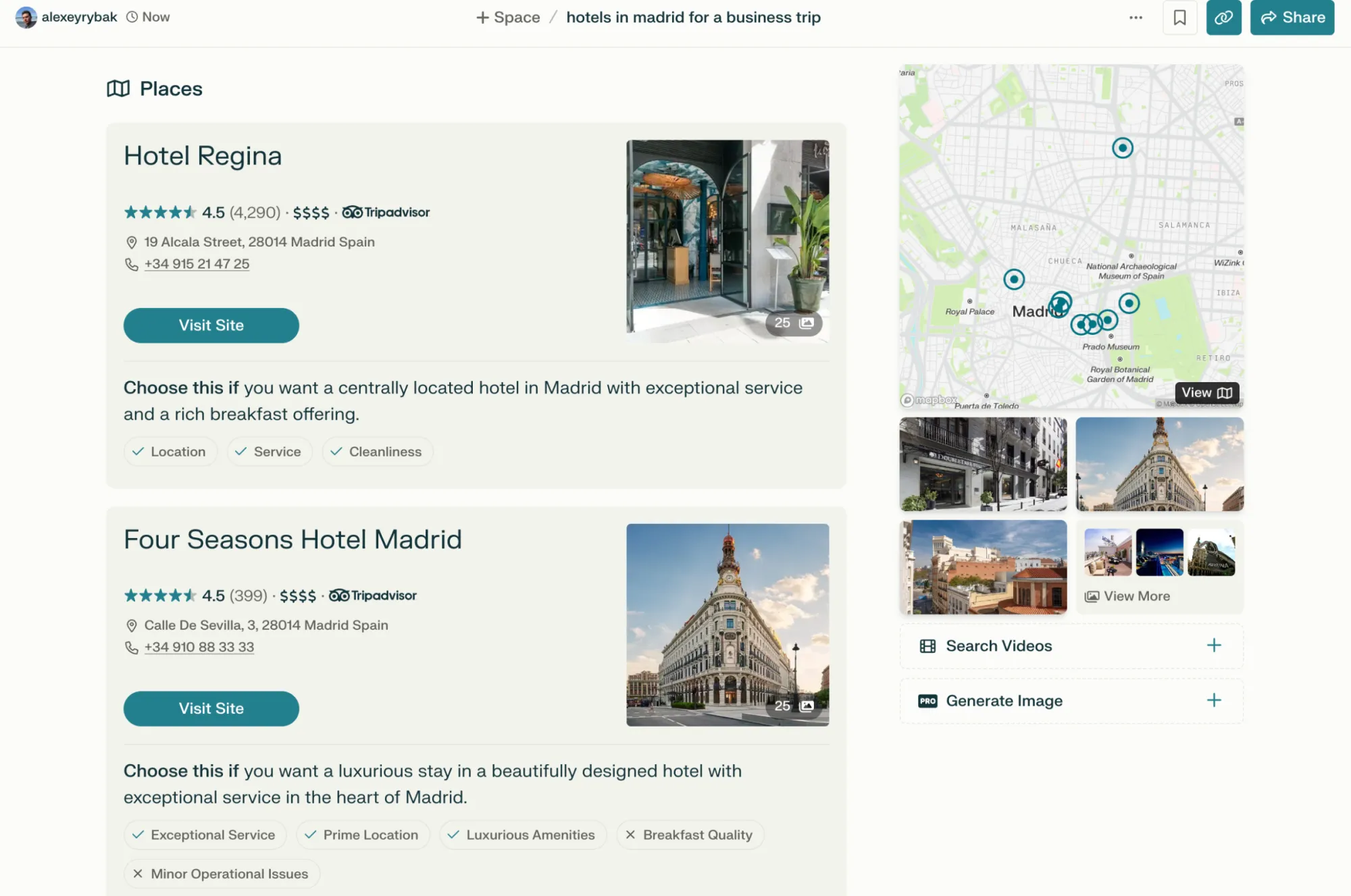
Better Pricing Strategies
AI is helping both travelers and companies make better decisions with less effort. For travelers, it means finding the right price without endless comparisons. For businesses, it means smarter forecasting, higher conversion, and more efficient use of resources.
Airbnb’s Smart Pricing is a strong example of how AI improves margins without hurting the customer experience. The feature automatically adjusts nightly rates based on real-time demand, location, property type, search activity, and booking trends. Hosts still stay in control by setting minimum and maximum limits, but the algorithm handles the rest. It keeps listings competitive, improves occupancy rates, and saves time.
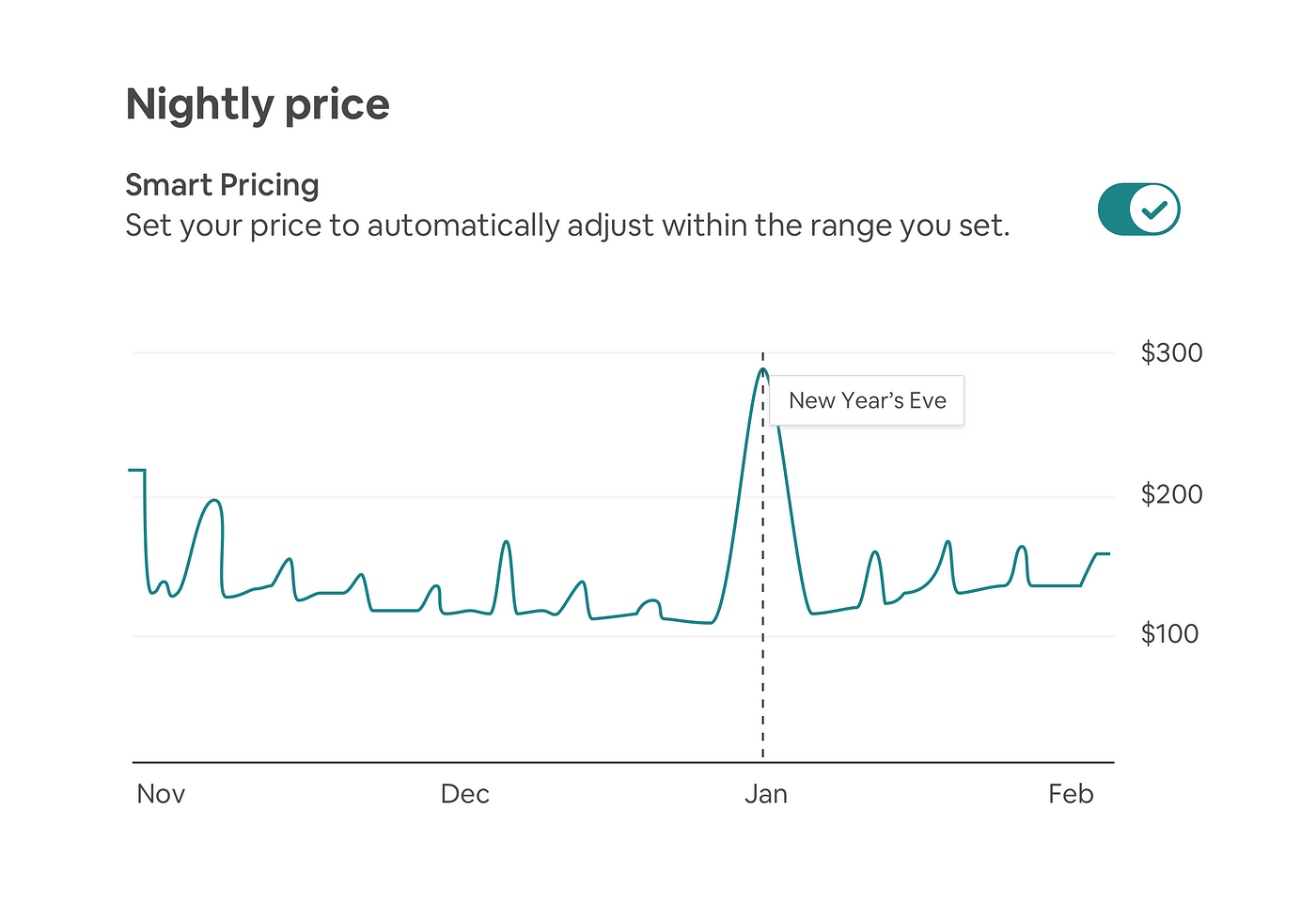
Guests benefit as well. Instead of seeing fixed prices that don’t reflect demand, they get more accurate and timely options. Hosts using Smart Pricing have seen an increase in earnings, while guests often pay less compared to listings with static rates.
In aviation, Delta Air Lines is moving toward a similar strategy. The company is working with the AI startup Fetcherr to introduce predictive pricing for domestic routes. The AI analyzes travel patterns, booking behavior, and customer data to determine prices in real time. Early tests show revenue gains of up to 9% in the markets where the system is active.
Delta plans to expand this model to a larger share of its tickets. The goal is to replace fixed fare classes with a system that continuously adjusts based on context. The result is not just better pricing accuracy but also improved seat utilization and stronger customer loyalty. The AI can respond to slow booking days, high-demand periods, and individual customer profiles much faster than any manual pricing strategy.
Risk Mitigation for Travelers and Companies
Delays, cancellations, and bad weather can easily ruin a trip. But AI-powered tools are helping both travelers and companies stay ahead of disruptions before they become problems.
Koala, a French travel insurance platform, monitors more than 100,000 flights every day. If a flight is delayed by 45 minutes, the traveler automatically receives $45 as compensation. For longer delays, the payout can reach up to $600. There is no need to file a claim or fill out any forms. Everything happens instantly in the background.

WeatherPromise takes a similar approach for weather-related risks. The app tracks over 350 million daily data points from satellites and radar systems across 2.5 million global locations. If weather conditions during a trip fall short of the forecast, the user receives compensation without lifting a finger. For example, if an eight-day beach trip to Phuket costs $370 and it rains throughout, travelers may get up to $6,000 back.
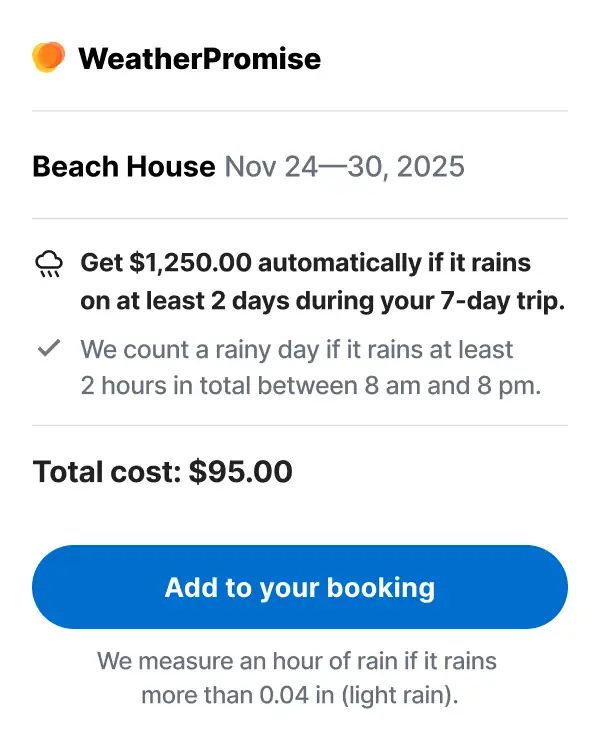
Frictionless Travel Experience
No one enjoys standing in airport lines or filling out forms on the go. With AI, travel apps and airlines are now removing many of these pain points by handling tasks like visa checks, document scanning, boarding pass generation, and even full customer assistance.
IndiGo, India’s largest airline, launched 6Eskai, a multilingual AI assistant built on GPT-4. Created in-house with Microsoft, this chatbot supports ten languages and helps with bookings, web check-in, seat selection, applying promotional codes, and answering FAQs. It even understands voice commands, making it easier for travelers to speak naturally instead of tapping through menus. IndiGo reports a 75% reduction in customer service workload since launch, showing how AI can manage large volumes of support without sacrificing the passenger experience.
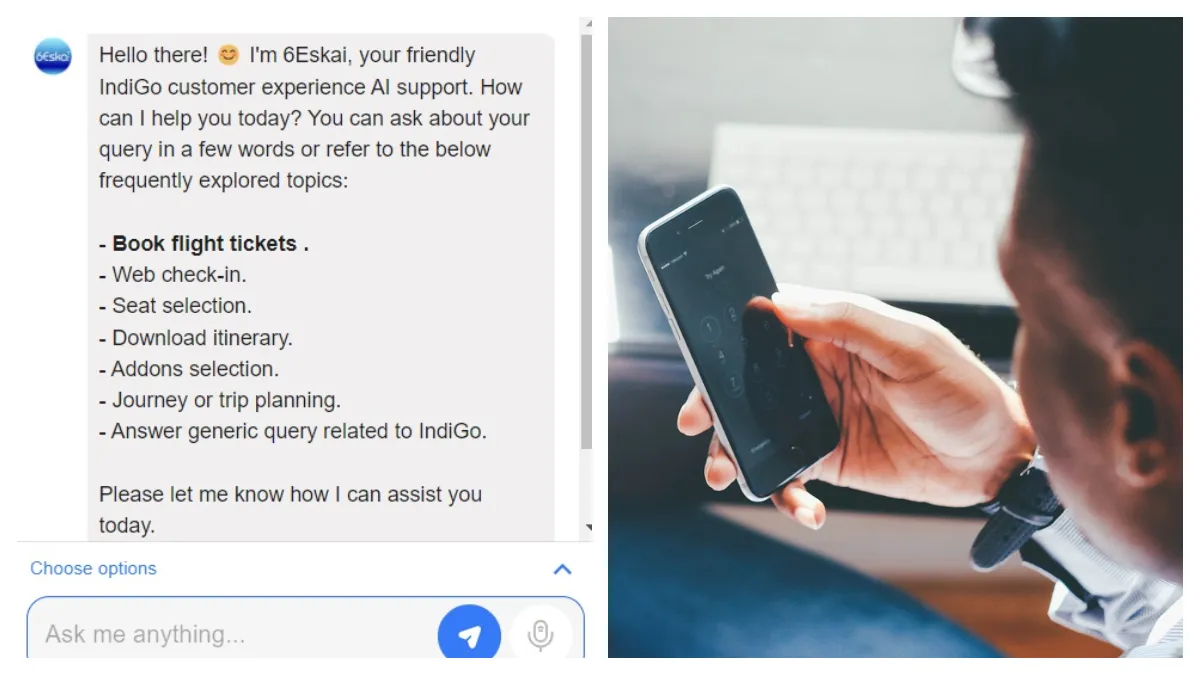
In the United States, Priceline introduced Penny Voice, an AI assistant powered by OpenAI’s GPT-4o and Realtime API. Penny allows users to search for hotels, explore destinations, and get restaurant or activity suggestions using natural conversation. It remembers user preferences, understands tone and emotion, and responds instantly with helpful guidance. Penny Voice is already live on Priceline’s homepage and iOS app, and will soon expand to include flights, car rentals, and full trip packages.
Hyper Personalization
AI makes travel feel personal again. Instead of showing the same hotels and tours to everyone, apps can now suggest trips that match each user’s tastes, habits, and travel goals.
GuideGeek is a great example. Created by Matador Network and powered by OpenAI, this assistant works directly in WhatsApp, Instagram, and Messenger. You simply message it with an idea for your next vacation, and it replies with suggestions for places to go, restaurants to try, and experiences to book.
Over time, it learns your preferences and sends smarter recommendations. With more than 3.7 million questions answered in over 40 languages, GuideGeek is quickly becoming a go-to tool for travelers.
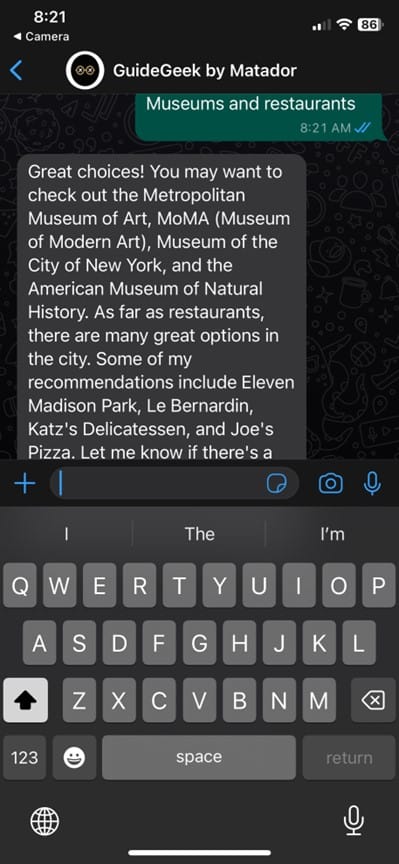
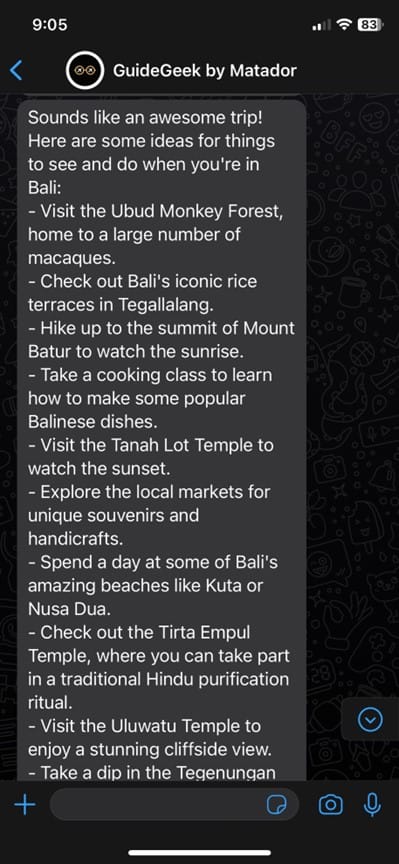
Perpetio’s active travel app is another example of personalized travel recommendations. Instead of planning a trip from scratch, users just pick the kind of activities they enjoy, like hiking or biking, and the app suggests full trips to match. As people use it more, the suggestions get even better.
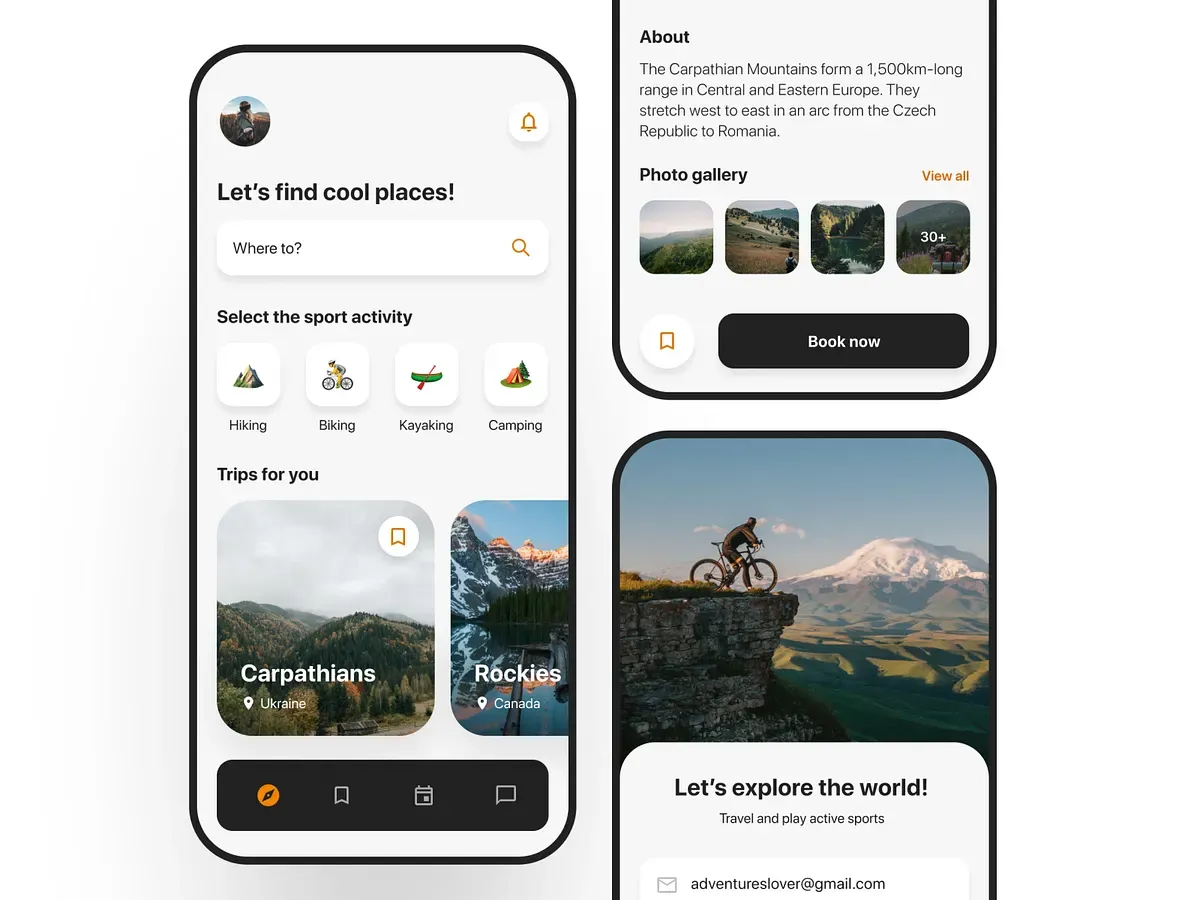
By learning from every interaction, AI helps both users and travel providers. People get smarter suggestions, and companies offer more relevant experiences with less effort.
Smart Support on the Go
Travel can be unpredictable. Delays, missed connections, and last-minute changes happen all the time, and when they do, people need help fast. AI-powered chat and voice assistants are stepping in to offer that support instantly, no matter the time zone or situation.
Delta is one of the airlines leading this shift. In 2025, the company will roll out Delta Concierge, a digital assistant built into the Fly Delta app. The tool uses generative AI to deliver personalized guidance throughout the journey. It can notify travelers about passport expirations and visa requirements, remind them to pack for the weather at their destination, and even guide them through unfamiliar airports with directions to gates, lounges, and TSA PreCheck lines.
Delta Concierge can be controlled by voice or text and eventually will anticipate what travelers need based on their profile and previous trips. For instance, it might suggest when to leave for the airport and even help book a ride through integrated partnerships with Uber. In the near future, it will go a step further by connecting to Joby’s electric air taxi service, helping travelers avoid road traffic altogether.

This digital concierge is not just about convenience. It is part of a wider move toward premium, membership-driven travel experiences that combine Delta’s data capabilities with AI to enhance customer loyalty and reduce the need for human intervention at every step.
HotelPlanner offers another impressive example. The company launched a voice-based AI assistant that now handles about 10,000 customer calls every day across more than one million hotel listings. The system is available in 15 languages, including English, Mandarin, Spanish, French, and Hindi. It can provide personalized hotel suggestions, check availability, explain booking terms, and complete transactions, all through a friendly, emotionally intelligent conversation.

The AI agents are trained using data from over eight million real customer calls. That foundation allows them to adjust tone based on caller emotion, recommend specific types of rooms, and even explain the difference between booking policies. For travelers, it feels remarkably close to speaking with a human agent. For HotelPlanner, it means scalable, 24/7 service without expanding their global staffing.
Consider Perpetio Your Truster Partner
Travel is one of the domains we know best. Over the past few years, we’ve helped build apps for tour discovery, accommodation booking, AI-powered trip planning, outdoor navigation, and more. From smart suggestions to full itinerary builders, our team has experience designing and developing travel apps that people actually enjoy using.
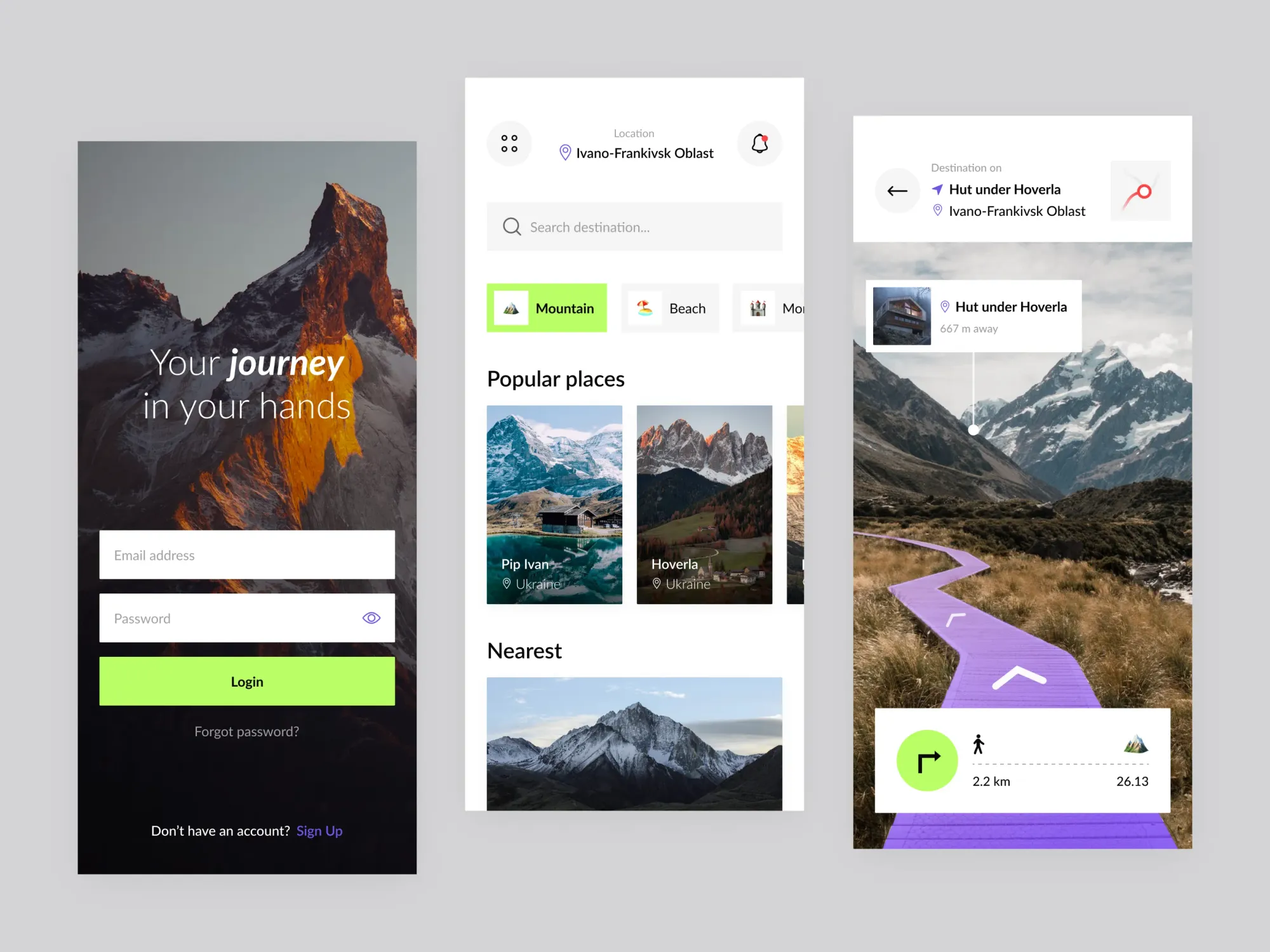
If you're thinking about bringing AI into your travel product, we’d be happy to explore it with you. We offer free consultations and can help you find the most useful and realistic AI features for your app.
Reach out at contact@perpet.io to chat with our team.
